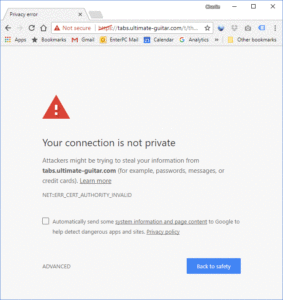“Does my site need SSL?” Over the last few years, the answer to that question has changed almost daily. Years ago I would have said, “probably not.” But then, the answer morphed into, “maybe… if you’re willing to spend a couple dollars extra on your hosting…” which became “you should strongly consider it.”
Today, the answer for most sites is “yes.”
Luckily, it’s never been easier or less expensive to protect your site with SSL.
Hang on. What are we talking about?
Right… let’s take a step back.
Without getting too far into the technical weeds… SSL (which stands for Secure Sockets Layer) is a method of protecting the data transmitted between two applications on the Web – for example, your browser and this web site. Without that data encryption, it’s possible for people with bad intentions to intercept that data.
Obviously, that’s most important when you’re dealing with any sort of private data… credit card numbers, tax information, stuff like that. So e-commerce sites have always needed that additional layer of security. But you could get it without implementing SSL on your own site… for many small businesses, simply using PayPal to handle transactions was enough.
Not any more.
SSL and SEO
As is so often the case, Google and the other big search engines are a major reason why SSL has become more important recently. Google started factoring SSL into search rankings as far back as 2014, and it is widely believed that site security has become a bigger factor in search standings since then.
SSL and Browsers
Modern web browsers have become increasingly sensitive to SSL issues as well. The picture on the right is a good example.
This has been happening for a few weeks on one of my favorite guitar chord web sites. The error pops up when I attempt to navigate from their main page to one of the second-level pages where the actual songs live.
There probably isn’t anything nefarious going on… my guess is they implemented SSL badly, and that mistake is getting flagged by the Chrome browser as a security risk.
Obviously, this is not the sort of experience you want for customers visiting your site.
Implementing SSL
Fortunately, adding SSL to most sites has never been easier. Check with your web host; many offer SSL as a free add-on or for a nominal fee. If not, Let’s Encrypt (https://letsencrypt.org) is a quick and easy option that works with lots of hosting setups. And if you need help, you can always give us a call.


